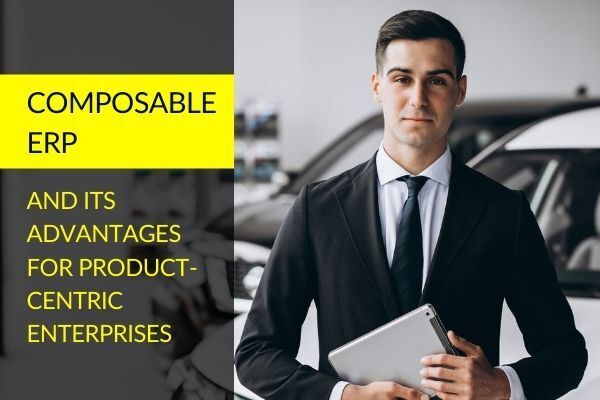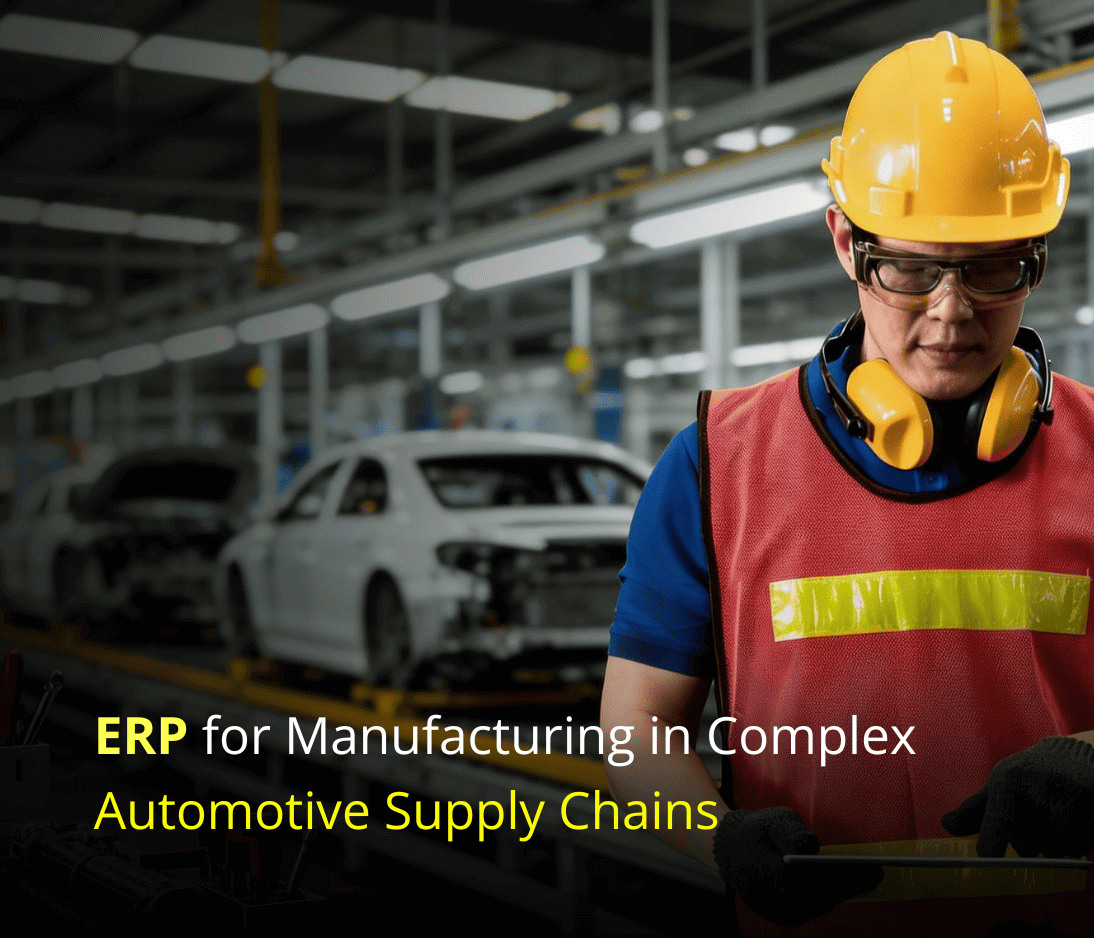What is Composable ERP? What are its Capabilities?
Gartner defines composable ERP as "an adaptive technology strategy that enables the foundational administrative and operational digital capabilities required for an enterprise to keep up with the pace of business change."
Composable ERP strategy represents an opportunity for businesses to adapt faster to changes. The configurable and flexible software solution is able to adopt future modern technology with ease. It is meant for delivering the best business outcomes through the assembly and combination of packaged software capabilities.
As many companies struggle to fully utilize their business software, the composable ERP framework offers the path to success.
So How Does it Work?
ERP software streamlines interaction and communications across the organization. This is why developing an effective composable ERP strategy that is able to support different business models and ensure unconstrained growth is critical for enterprises.
Why is Composable ERP Needed?
As enterprises grow, they attempt to update their monolithic ERP applications, but often find it challenging to continue using the legacy technology amid rapidly changing business demands.
The reason being, monolithic ERP systems are not always available for reuse. Whereas, composable ERP is an adaptive technology strategy with advanced capabilities that offer higher flexibility needed for scaling it up. The system is able to fulfill critical business functions more rapidly, without the need for redeveloping existing capabilities. Thus it fuels business growth through smarter technology.
Composable ERP is built assembling and orchestrating the right set of functionalities - by tailoring existing components and combining them with new capabilities to address new and upcoming business needs. The cloud ERP applications designed using composable strategy could be developed and upgraded faster than the monolithic model.
Role of Composable ERP in the Modern Business Landscape
The ERP software landscape has been evolving for decades now. While it’s undoubted that today’s ERP solutions are faster, scalable, and intuitive than they used to be when they were first introduced in the 90s. This improvement is driven by incremental changes. However, the overall paradigm remains the same - giving companies the tools that make business management easier.
Composable ERP would escalate these changes. For example, as business needs change, organizations must be able to keep up with them and for that, they would require adopting a responsive ERP system that is flexible and agile in delivering innovation quickly. This is supported by a composable ERP strategy - giving businesses packaged software that accelerates the application experiences and supports rapid, post-implementation extensions and enhancements.
The promise of composable ERP goes further than just being nimble. It is defined as an integrated application that could be composed and recomposed to help organizations master the capabilities of managing abrupt business disruptions and augment users’ workflows.

Business Challenges that a Composable ERP Could Overcome
Sparked by global disruption due to the Covid-19 pandemic, businesses seeking opportunities for a quick recovery need to evolve their current ERP strategies and embrace the new complex technology environment.
Remote-working is the new reality post-pandemic. Advanced cloud-based business software is needed to automate organizational processes while ensuring employees have adequate access to information and they are able to update data while performing their tasks outside the office.
Following are the key benefits of ERP that help combat business challenges and enable them to continue to function remotely:
Ensure remote working productivity
With the covid -19 outbreak, many companies shifted overnight to work from home setup, just making sure that they are operating adequately. But now it’s time to re-evaluate the technologies and processes adopted to make sure they preserve employee productivity and business continuity.
The updated ERP strategy enables home-based staff to effortlessly collaborate with team members and other departments, create or update workflows remotely to ensure communications are never disrupted.
Take advantage of reporting capabilities
Employees are still working from dispersed locations and that can interrupt reporting and workflows. Cloud ERP solutions remove this uncertainty. These systems allow remote reporting and quarterly filings to be done through the user dashboards that are accessible from anywhere.
Streamline virtual operations
As operations are performed virtually during the pandemic, employees often find the processes unfamiliar while technical hurdles and disconnected systems add to the complexity.
ERP packaged software includes tools to help businesses remotely manage and consolidate activities and create effective task flows.
Implementation strategy of composable ERP
The composable strategy of a product-centric cloud ERP allows real-time integration across the enterprise for rapid analysis of data and improved business decisions. Better collaboration, swift planning, and enhanced performance would create more opportunities for organizations to capitalize on competitive advantages.
The ERP implementation is a six-step process. They are:
Step 1: Creating a foundation for the deployment throughout the organization.
Step 2: Adapt immediately by enabling flexibility of access.
Step 3: Assess capabilities and arrange for training.
Step 4: Determine the system’s supportability for a hybrid infrastructure.
Step 5: Define performance expectations and monitor executions.
Step 6: Ensure the solution meets all the security standards.
The Future of Composable ERP
Composable ERP is slowly becoming a new and mandatory route leading to a brighter business future. More and more organizations are leaning towards adopting composable ERP to intelligently drive down operational risks and costs. Gartner predicts that "By 2025, more than 70% of large enterprises will move from a single-vendor monolithic ERP strategy to a more inclusive composable strategy."
We, at Focus Softnet, design the best ERP software in India. These are flexible applications that include capabilities to support expected business outcomes. Fill in the form to know more from our product experts.








